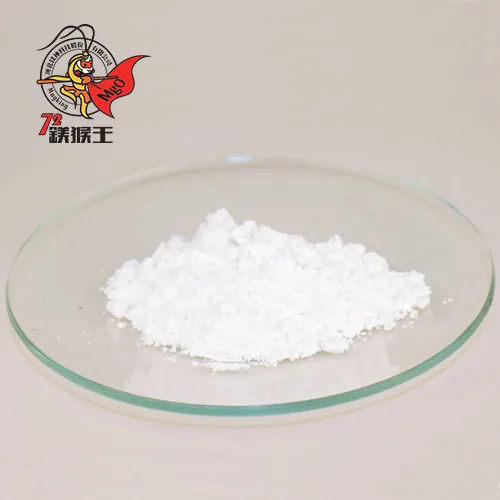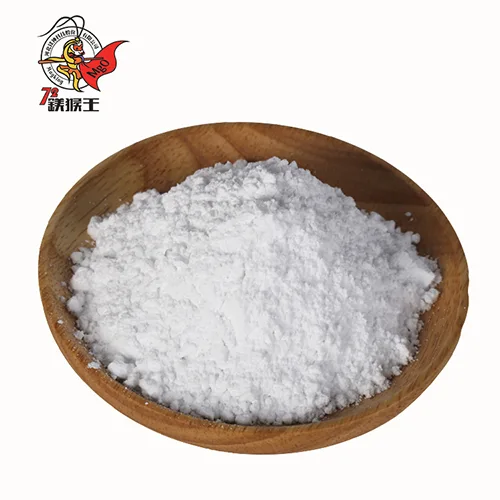Magnesium oxide (MgO) is a widely used inorganic compound in the food and beverage industry. Known for its multiple functional properties, it serves as a nutritional supplement, acidity regulator, and anti-caking agent in various beverage formulations. Different types of beverages, such as sports drinks, carbonated drinks, and functional beverages, utilize magnesium oxide for different purposes. This article explores the key roles of magnesium oxide in beverages, from enhancing nutritional value to improving stability and functionality.
Nutritional Enhancement
Magnesium is an essential mineral that plays a crucial role in many physiological functions, including muscle contraction, nerve transmission, and energy metabolism. However, many people do not meet their daily recommended intake of magnesium, leading to potential health issues such as muscle cramps, fatigue, and poor cardiovascular health.
Beverages, especially sports drinks and functional beverages, often incorporate magnesium oxide as a dietary supplement. Magnesium oxide is a highly concentrated source of magnesium, providing an efficient way to increase magnesium intake. This is particularly beneficial for athletes, individuals with magnesium deficiencies, and those following specific diets that may lack adequate magnesium.
Benefits of Magnesium Supplementation in Beverages:
- Supports muscle and nerve function – Essential for electrolyte balance, reducing the risk of cramps and spasms.
- Enhances energy production – Involved in ATP synthesis, a key energy source for cells.
- Aids in bone health – Works with calcium to maintain strong bones.
- Regulates blood sugar levels – Helps prevent insulin resistance and supports metabolic health.
Acid-Base Regulation and Stability Control
Maintaining the right pH balance is essential for beverage stability, taste, and shelf life. Magnesium oxide serves as both a pH regulator and a buffering agent, ensuring that beverages remain within an optimal pH range.
pH Regulator
Many beverages, such as carbonated drinks and fruit juices, have acidic components that can affect stability and taste. Magnesium oxide helps neutralize excessive acidity, ensuring a more balanced flavor profile and reducing potential damage to teeth and the digestive system. Additionally, in dairy-based or plant-based beverages, magnesium oxide can prevent excessive acidification, maintaining a smooth and pleasant taste.
Buffer
Magnesium oxide acts as a buffer in beverages by stabilizing pH levels against fluctuations caused by ingredient interactions or environmental factors. This buffering effect is particularly useful in beverages that contain organic acids, vitamins, or probiotics, as it helps maintain product consistency and effectiveness.
Functional Auxiliary Effect
Beyond its nutritional and pH-regulating properties, magnesium oxide also contributes to the functional stability of beverages. It plays roles in powder-based beverages as an anti-caking agent and in some liquid formulations as a suspension stabilizer.
Anti-Caking Agent (Solid Beverage)
Powdered beverage mixes, such as instant sports drinks, protein shakes, and electrolyte powders, often face challenges related to moisture absorption and clumping. Magnesium oxide functions as an effective anti-caking agent, preventing particles from sticking together and ensuring easy mixing and dissolution. By keeping the powder free-flowing, it enhances the overall user experience and convenience.
Suspension Stabilizer
In some cases, magnesium oxide can aid in maintaining the suspension of certain ingredients in liquid beverages. This is especially relevant in fortified drinks that contain minerals, plant extracts, or other insoluble components. By improving dispersion and preventing sedimentation, magnesium oxide contributes to a consistent texture and appearance, which is crucial for consumer appeal.
Conclusion
Food grade magnesium oxide is a valuable ingredient in the beverage industry, offering multiple benefits that range from nutritional supplementation to functional stability. Whether used to enhance magnesium content in sports drinks, regulate acidity in carbonated beverages, or prevent caking in powdered mixes, MgO plays an important role in improving beverage quality and effectiveness. Additionally, compliance with regulatory standards ensures that magnesium oxide remains a safe and beneficial additive. As beverage innovation continues, the strategic use of magnesium oxide can help manufacturers create products that meet consumer demands for health, functionality, and stability.
FAQs
Is magnesium oxide safe for consumption in beverages?
Yes, magnesium oxide is generally recognized as safe (GRAS) by regulatory authorities such as the FDA and EFSA when used within recommended limits. However, excessive intake may lead to gastrointestinal discomfort, so it is important to adhere to safe dosage guidelines.
How does magnesium oxide compare to other magnesium sources in beverages?
Magnesium oxide has a high magnesium content, making it a cost-effective option for supplementation. However, its solubility is lower compared to forms like magnesium citrate or magnesium chloride. The choice of magnesium source depends on the specific beverage formulation and desired bioavailability.
Can magnesium oxide affect the taste of beverages?
In most cases, magnesium oxide has minimal impact on taste when used in appropriate amounts. However, excessive use may impart a slightly chalky or bitter taste. Beverage manufacturers carefully formulate products to balance functionality and flavor.
By leveraging the benefits of magnesium oxide, beverage manufacturers can enhance both the nutritional and functional quality of their products, meeting consumer expectations for health-conscious and stable formulations.



